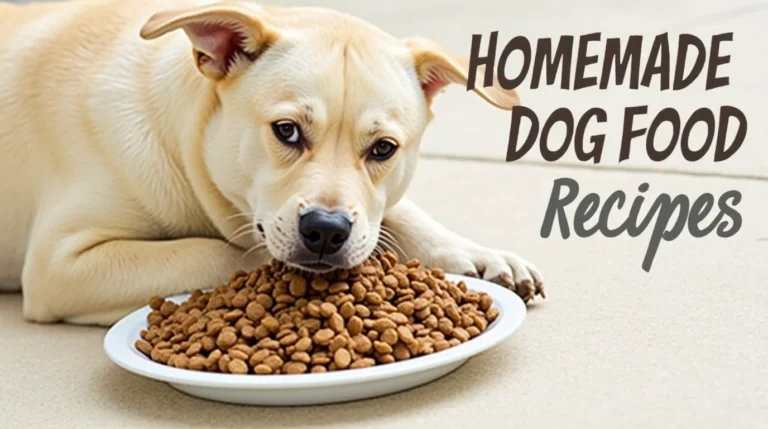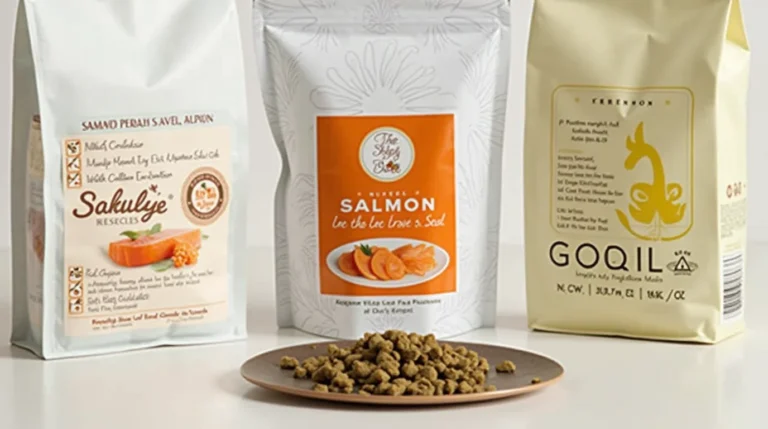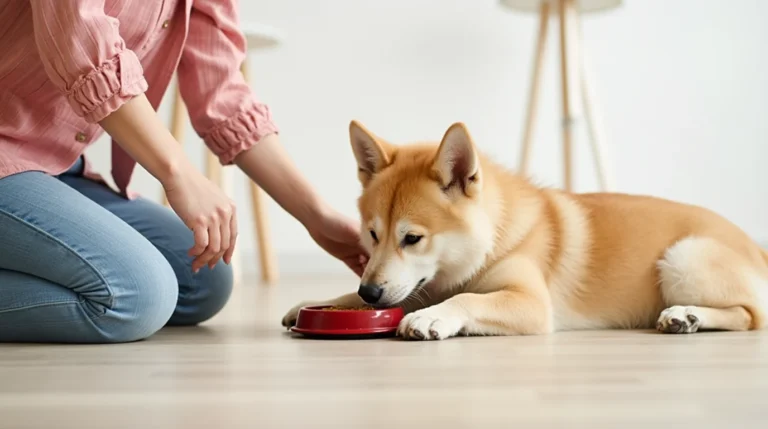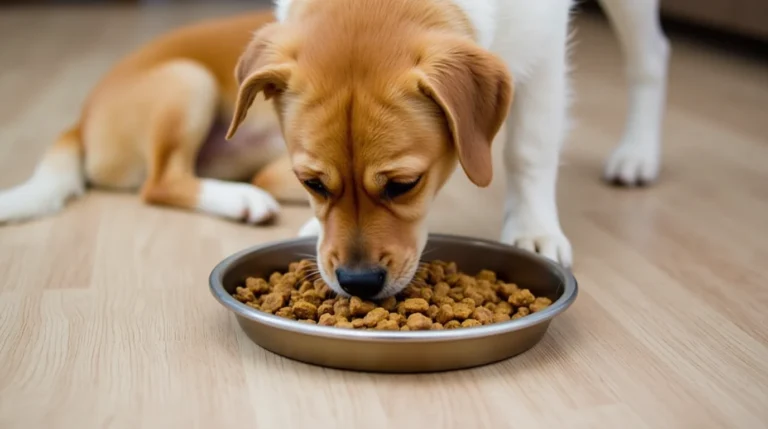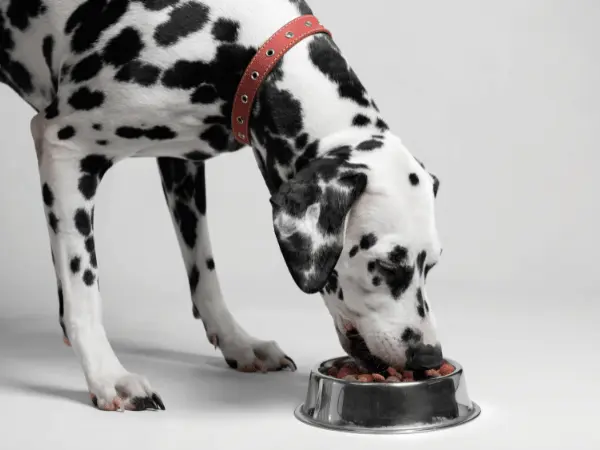Table of Contents
Pancreatitis is a serious and painful condition in dogs that requires careful dietary management. If your pet has a pancreatitis diagnosis, you must choose the right food to support their recovery and long-term health.
Homemade dog food for pancreatitis is a great choice. It lets you control the ingredients. You can make a low-fat, healthy diet for your dog.
In this guide, we will discuss what causes pancreatitis in dogs. We will also cover important diet rules, safe and unsafe ingredients, and easy homemade recipes. These will help you manage your pet’s condition well.
What is Pancreatitis in Dogs?
Pancreatitis is inflammation of the pancreas, an organ responsible for digesting food and regulating blood sugar. When inflamed, the pancreas releases digestive enzymes too early, leading to pain, vomiting, and other severe health issues.
Symptoms of Pancreatitis in Dogs
- Vomiting and diarrhea
- Loss of appetite
- Lethargy and weakness
- Abdominal pain (hunched posture or reluctance to move)
- Fever
Common Causes of Pancreatitis
- High-fat diet (table scraps, fried foods, fatty meats)
- Obesity
- Certain medications or toxins
- Underlying medical conditions (e.g., diabetes or hypothyroidism)
If a veterinarian diagnoses your dog with pancreatitis, you need to change their diet. This will help reduce inflammation and prevent future flare-ups.
Why Choose Homemade Dog Food for Pancreatitis?
Many commercial dog foods contain hidden fats, additives, and artificial ingredients that can worsen pancreatitis. By preparing homemade dog food for pancreatitis, you can:
✔ Control fat content and avoid unhealthy additives.
✔ Choose fresh, high-quality ingredients.
✔ Adjust recipes to meet your dog’s specific nutritional needs.
✔ Reduce the risk of future pancreatitis flare-ups.
Talking to your veterinarian before changing to homemade food is important. This will help make sure it meets your dog’s dietary needs.
Key Nutritional Guidelines for Dogs with Pancreatitis
When preparing homemade dog food for pancreatitis, follow these critical dietary guidelines:
1. Low-Fat Diet
A low-fat diet (less than 10% fat content) helps reduce stress on the pancreas. Choose lean protein sources like:
- Skinless chicken breast
- Turkey (white meat only)
- Low-fat cottage cheese
- Egg whites
2. Easily Digestible Carbohydrates
Dogs with pancreatitis benefit from easily digestible carbs that provide energy without straining the pancreas. Good options include:
- Brown or white rice
- Sweet potatoes
- Pumpkin (plain, unsweetened)
- Oatmeal
3. Moderate Protein Intake
Protein is essential, but avoid high-fat meats. Stick to lean sources and cook them thoroughly to aid digestion.
4. No Artificial Additives or Processed Foods
Artificial flavors, colors, and preservatives can trigger inflammation. Always opt for natural, whole-food ingredients.
5. Hydration is Key
Dogs with pancreatitis can become easily dehydrated. Always provide fresh water and consider adding low-sodium bone broth to meals.
Ingredients to Avoid in Homemade Dog Food for Pancreatitis
Avoiding high-fat and processed foods is crucial for managing pancreatitis. Never include these ingredients:
🚫 Fatty meats (pork, lamb, beef trimmings)
🚫 Dairy products (except low-fat cottage cheese in small amounts)
🚫 Oily fish (salmon, sardines, tuna)
🚫 Butter, cream, or heavy oils
🚫 Fried or processed foods
🚫 High-fat treats (peanut butter, bacon, cheese snacks)
Simple Homemade Dog Food Recipes for Pancreatitis
Here are two vet-approved, low-fat recipes you can make at home:
1. Chicken and Rice Meal
Ingredients:
- 1 cup cooked skinless chicken breast (shredded)
- 1/2 cup cooked white rice
- 1/2 cup steamed carrots (mashed)
- 1/2 cup pumpkin puree
- 1/4 cup low-fat cottage cheese
Instructions:
- Cook and shred skinless chicken breast.
- Steam carrots and mash them for easy digestion.
- Mix all ingredients in a bowl.
- Allow to cool before serving.
Serving Size: Adjust portions based on your dog’s size and activity level.
2. Turkey and Sweet Potato Meal
Ingredients:
- 1 cup ground turkey (white meat only, fat drained)
- 1/2 cup cooked sweet potato (mashed)
- 1/4 cup steamed green beans
- 1/2 cup cooked oatmeal
Instructions:
- Brown ground turkey in a pan and drain excess fat.
- Boil sweet potatoes until soft and mash them.
- Steam green beans and cut them into small pieces.
- Mix everything and serve once cooled.
Storage Tip: Refrigerate leftovers and use within 3 days or freeze for later.
How to Transition Your Dog to a Homemade Diet
When switching to homemade dog food for pancreatitis, transition gradually to avoid digestive issues.
1️⃣ Days 1-3: Mix 25% homemade food with 75% current food.
2️⃣ Days 4-6: Increase to 50% homemade food.
3️⃣ Days 7-9: Increase to 75% homemade food.
4️⃣ Day 10+: If no digestive issues occur, switch to 100% homemade diet.
Monitor for vomiting, diarrhea, or loss of appetite and consult your vet if needed.
FAQs About Homemade Dog Food for Pancreatitis
1. Can I add supplements to homemade dog food?
Yes! Essential supplements include:
✔ Vitamin B12 supplement – Supports digestion and energy levels.
✔ Vitamin D3 supplement – Aids calcium absorption and bone health.
✔ Vitamin E supplement – Provides antioxidant protection.
2. How often should I feed my dog with pancreatitis?
Small, frequent meals (3-4 times a day) help prevent pancreatic stress.
3. Is fish safe for dogs with pancreatitis?
Most fish are too high in fat. Instead, choose lean proteins like chicken or turkey.
4. Can I give my dog store-bought treats?
Avoid high-fat, processed treats. Instead, use homemade low-fat treats like boiled chicken bites or pumpkin cubes.
5. How long should my dog stay on a pancreatitis diet?
Dogs prone to pancreatitis should remain on a low-fat diet for life to prevent flare-ups.
Conclusion
Managing pancreatitis in dogs requires a carefully balanced, low-fat diet. Making homemade dog food for pancreatitis helps your pet get the nutrition they need. It also prevents future health problems.
Always consult your veterinarian before making dietary changes and monitor your dog’s weight, activity level, and digestion regularly.
Would you like more vet-approved homemade recipes for your pet? Let me know in the comments


